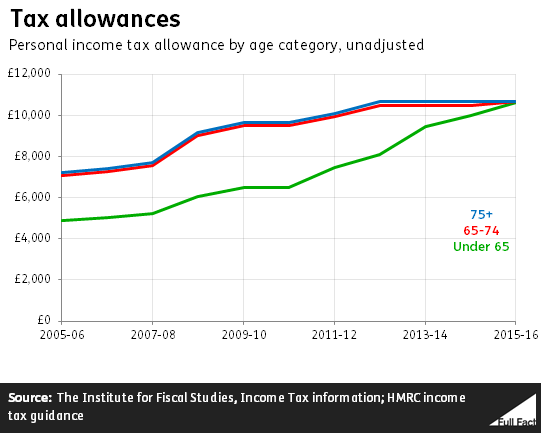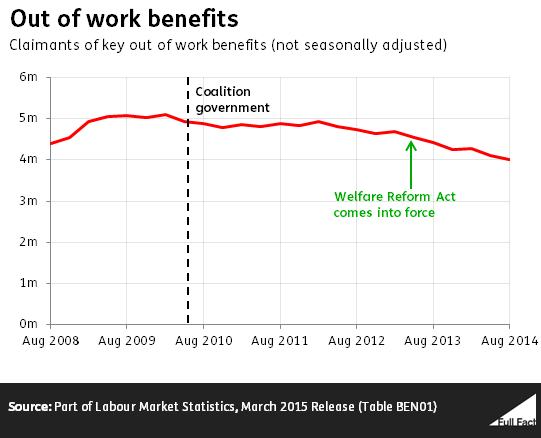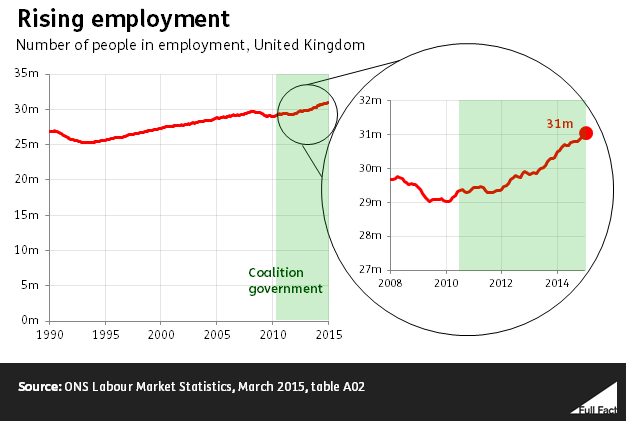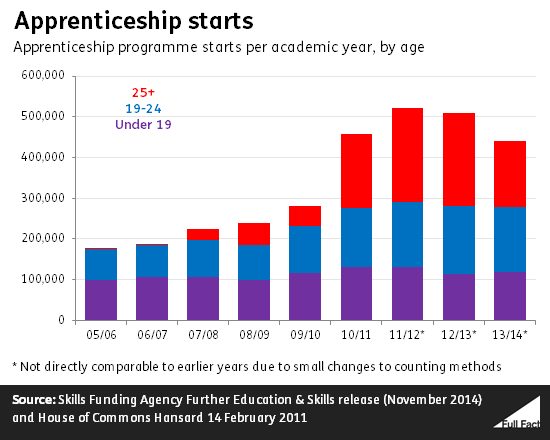Factchecking the Prime Minister's interview on Andrew Marr
The PM was interviewed on the Andrew Marr show this morning. We've factchecked some of the claims about housing, tax, welfare, and jobs.
"[In] 2011, you relaunched the Right to Buy and for every house that was sold you have replaced one in ten"—Andrew Marr
This is about right. Between April 2012 and December 2014, 26,000 homes were sold under Right to Buy arrangements in England. Over the same time period, about 2,700 replacement homes were delivered using Right to Buy receipts: that's about one for every ten houses sold under Right to Buy. This doesn't include a very small number of Right to Acquire properties.
"we have built more council houses in the last five years than Labour built in thirteen"—David Cameron
That's true of homes built for local authorities in England. From the election to the end of 2014 over 6,000 were built, compared to 3,000 between elections in 1997 and 2010.
But most new social homes aren't "council houses", in that they're owned by housing associations rather than local authorities. 120,000 social homes were built during the five years of the current government, compared to 250,000 over 13 years with Labour.
We've calculated each government's term from the second quarter of the relevant year (1997 and 2010).
"What we've done in five years, with difficult decisions, is taken three million of the lowest paid people out of tax..."—David Cameron
The Treasury estimates the steady increase in the threshold at which workers begin to pay income tax—the so-called personal allowance—will mean that 3.2 million people more will pay no income tax at all, based on data from the Survey of Personal Incomes.
When the Prime Minister came to office in 2010, the first £6,475 of earnings was tax-free and this has been steadily increased to £10,600 from April 2015.
While it is correct to say that these people have been 'lifted out of income tax altogether', this doesn't necessarily mean they aren't being taxed on their earnings at all. As IFS director Paul Johnson has noted, national insurance contributions are made by some employees earning less than the personal allowance threshold.
"...the 900,000 people we have got off welfare and into work…"—David Cameron
In May 2010 there were 4.9 million people on 'key out of work benefits'; in August 2014 there were just over four million.
But this doesn't necessarily mean these people went back to work or returned to work.
The out of work benefits data includes unemployment-related benefits including Jobseeker's Allowance and Employment and Support Allowance. But it also includes some other benefits, meaning that not all recipients are people who are out of work.
"What about the one million people depending on food banks?"—Andrew Marr
It's been reported that food banks saw one million uses in 2013/14. But these figures haven't yet been released publicly, and the most recent data available puts the number at 900,000. The true scale of the problem is likely to be rather different.
These figures are from the Trussell Trust, which a major provider of emergency food assistance, but not the only one. Its figures include data from 430 food banks; that's just over a quarter of the estimated 1,500 providers of emergency food assistance in the UK.
The headline figure counts uses of food banks, not people. If emergency food is given to a family of four, that's four uses. If they receive emergency food again a month later, that's four more uses. The Trussell Trust estimated that just under 35% of their users received assistance more than once over six months. This means the number of people helped by the Trussell Trust last year is less than the headline figure.
"[we have] created two million jobs, that's two million more people with a livelihood"
"what we've done is [to get] two million more people in work"—David Cameron
There are now over 31 million people in employment, two million more than since the three months prior to the election.
That's not the same thing as two million more jobs, because some people in employment have more than one.
"What we've done is [create]… two million more apprentices…"—David Cameron
Over two million apprenticeships have been started since May 2010, when you include the estimated figures for the 2014/15 academic year. The biggest increase was among over-25s.
"recently about two thirds of the people getting jobs have been British nationals. That is a huge contrast to how it was when I first became Prime Minister: 90% were going to foreign nationals."—David Cameron
UK nationals accounted for 61% of the change in employment since last year compared to non-UK nationals.
Going back to the time of the last election, 94% of the increase in employment was down to non-UK nationals in the year up to April to June 2010 (when the Prime Minister took office). In 2010 as a whole non-UK nationals accounted for about 84% of the increase in employment compared to 2009.
"The people who say they're not full time jobs - wrong - about 80% of them are full time jobs."
There are a number of time periods you could take for the last election, most of which show a lower figure. 73% of the two million increase in employment since just before the 2010 election was down to full-time employment, not 80%. Breaking it down further, of the two million increase, 60% were full-time employees and 12% were full-time self-employed.



